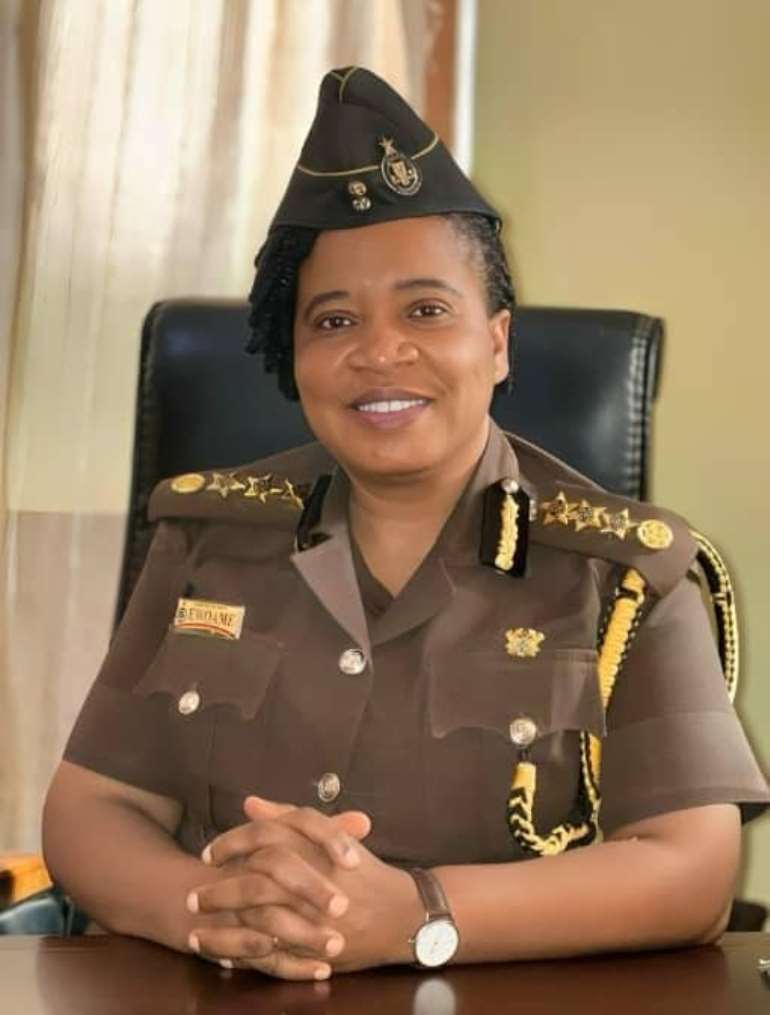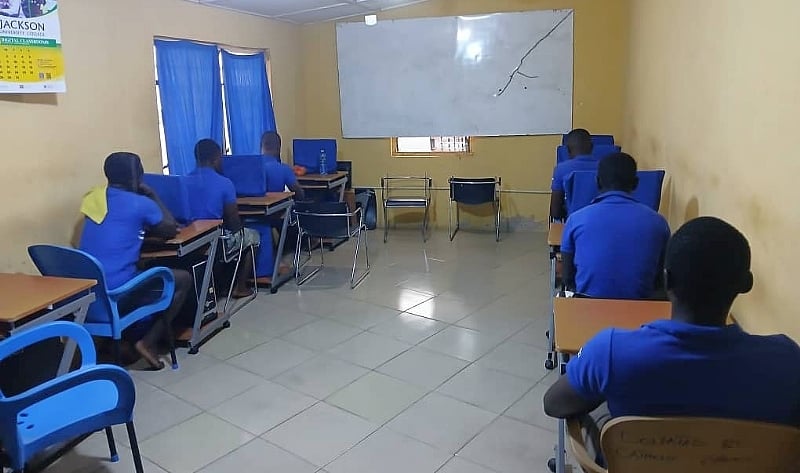Nine inmates of the Manhyia local prison in Kumasi have been awarded scholarships by Jackson University College to pursue a Bachelor of Education (B.Ed) programme on a virtual mode.
The undergraduate student inmates, who are between the ages of 26 and 39, and in the second year of their education, would be majoring in Basic Education for Upper Primary.
The students who attend virtual lectures during the weekends, however, faced serious challenges of weak internet connectivity at the detention centre, as well as inadequate learning materials.
Mrs Hannah Hilda Ewoame, the Deputy Director of Prisons and Officer-In-Charge of the Manhyia Prisons, told the Ghana News Agency during a visit to the facility that, it was important for inmates to engage in activities which would be beneficial to them in the future, when they were discharged and that time was an essential commodity in prison.

Mrs Ewoame said the prison was not just a place for holding criminals but a place for the reformation and rehabilitation of inmates.
She stated that formal education was one of the rehabilitation processes that inmates were encouraged to take up while in prison.
Mrs Ewoame said her outfit discovered after various interactions with the inmates that most of them were school dropouts, and some showed interest in going back to school.
“Currently, we only have virtual tertiary education mode in the prison. We look forward to establishing the Junior High School (JHS) and Senior High School (SHS) here as well,” she disclosed.
She, therefore, called on educationists and philanthropists to support the prison to raise a structure within its premises as classrooms for student inmates.
“We don’t have enough space in the prison yard to put up a structure as classrooms to support the establishment of the JHS and the SHS,” she explained.
One of the undergraduate student inmates, who had spent eight years in prison (four years each at the Kumasi Central Prison and the Manhyia Local Prison), said he decided to enroll in school so that his time in prison would not be wasted.
“I don’t want my time here to be wasted. I believe I am making the right choice, and if I am discharged in the next two years, I am willing to teach in any government school,” he said.
He noted that although they studied at the ICT lab in the prison, there were inadequate chairs and desktops, weak internet service, no educational materials associated with the field of study, no projector or other reliable learning materials.
He said this made learning very difficult as all nine inmates depended on one laptop without a sound box machine to project the sound during lectures.
Since they were inmates, their movements were also restricted; hence, they could not experience the Supported Teaching in School (STS) programme, he said.
The STS programme allowed student teachers to apply their knowledge gained in a real-life classroom.
He appealed to the government to put measures in place to allow them to practice the STS programme.
“At this point, we are not bothered if the students identify us as prisoners because we need the experience to be able to become qualified teachers,” he stated.
He further pleaded with the government to give them some allowance to purchase academic books online, print out handouts, their results, and other important academic documents.
He also called on network-providing companies to be gracious in providing them with a stable network service, to enhance teaching and learning.
The Manhyia Local Prison has a total inmate of 167 males sharing six cells.
GNA


